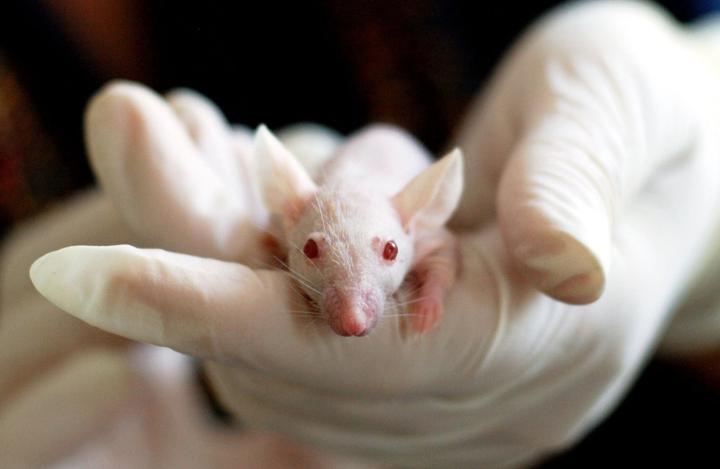
FDA Modernization Act 2.0 Removes Requirement for Animal Testing
Wed Jan 11
In 1937, 100+ people (including many children) died from Elixir Sulfanilamide, a drug prescribed for strep throat. Upon investigation, it was found that chemists used the deadly poison, diethylene glycol (the slightly sweet, colorless, near odorless solvent used in antifreeze), to dissolve the sulfanilamide which is normally in powder or tablet form. Since then, the FDA has mandated that drug makers prove their product’s safety and efficacy before selling it. Part of that process was testing the drug on animals.
That's no longer necessary thanks to a bill introduced by Sen. Rand Paul with broad support. Signed in December, the bill removes the requirement for animal testing and allows for alternatives. Many are in support because a number of studies show that animal testing is:
- Unreliable. Despite passing animal trials, 96% of drugs fail in human trials from safety or efficacy issues. In fact, lab animals only predict toxic responses in humans around 50% of the time (no greater than random chance).
- Hard to reproduce. Mice moved to a larger cage has resulted in inflicted defects disappearing, meaning that lab conditions can be a big influence on a result. Stricter standards have not resolved the issue. In over 800,000 studies, toxicity was only repeatable 70% of the time in the same species.
- Expensive. Not only does animal testing add years to drug development, it costs hundreds of thousands to millions of dollars per drug study.
- Ethically questionable. The essential procedures are physically and psychologically distressing to animals (food and water deprivation, physical restraint, infliction of disease or wounds, and more).
In fact, today’s high tech alternatives are proving better at predicting human responses than animal tests:
- Microfluidic organs-on-chips simulate human organs on chips the size of USB flash drives. Because the organ-on-chip is highly controllable, researchers can better understand the drug’s effects and fine-tune the dosing.
- Organoids (blobs of tissue that are miniature, simplified organs) offer a detailed view of how organs form and function. They’ve also been shown to predict patient responses to some cystic fibrosis medications and chemotherapy.
- Computer models and AI are the fast and cheap alternatives but they’ve already outperformed animal tests in predicting adverse effects of cardiac drugs.
While the FDA has dropped the requirement to test on animals, there isn’t a ban on it. This ensures the ability to perform animal testing where necessary, especially as the new technology replacing it has yet to fully mature.
BELOW THE FOLD BYTES
Reduced Jail Time for Organ Donations Proposed
While organs-on-chips are close to reality, we’re not there yet with transplantable ones. To address the need for organs in Massachusetts, a bill in the state legislature has been proposed to “restore bodily autonomy to incarcerated folks” by allowing them to donate organs and receive 60 days to a year off their sentence. While the bill’s intent is to provide inmates the ability to save their family member or friend’s life, critics are comparing it to organ harvesting and say it “preys on desperation.” Usual sentence reductions are granted for things that reduce the risk of reoffending, but organ donation offers no such connection leading many to argue against this scheme. As is, it seems unlikely to pass into law.
Preparing for Toxic Sewer Repairs
Sewer repairs are expensive and the US needs more than the budget allows. Worryingly, the cheapest solution available comes with serious health risks. The CIPP (Cured-In-Place Pipe) repair is one of the cheapest and most common methods but performing it generates harmful fumes that penetrate surrounding buildings even blocks away. Forced evacuations have occurred in the past with hundreds falling ill from the fumes, some even hospitalized. Those affected were told the exposures were harmless but at least one study shows measurements were inaccurately low, sometimes by a thousandfold, and could be unsafe. With a wave of infrastructure projects on the horizon, experts advise on taking precautions.
🎬 Action of the Week
Find out if and when sewer pipe repairs are happening near you through your municipality. Experts advise residents to close their windows and doors, fill plumbing traps with water, and leave the building during pipe-curing operations. Those performing CIPP repairs have more to review, including risks and recommendations from the CDC.
THIS WEEK'S SOURCES
- Wired: High Tech Alternatives To Animal Testing 7 minutes long | 1 week ago
- ScienceDirect, JACC: Limited Toxicity Predictions With Animals 21 minutes long | 3 years ago
- Humane Society International: About Animal Testing 8 minutes long | 10 years ago
- Cambridge Open: Flaws and Human Harms In Animal Tests 24 minutes long | 7 years ago
- The Pharma Letter: Implications of FDA Modernization Act 2.0 5 minutes long | 8 days ago
- Fast Company: Organs-on-chips Tech 4 minutes long | 1 week ago
- US FDA: Lab and Animal Studies 4 minutes long | 7 years ago
- Humane Society International: Costs of Animal and Non-Animal Testing 1 minute long | 10 years ago
ASCII-ING ABOUT THE NEWS
_ _ (o)(o)--. \../ ( )hjw m\/m--m'`--.
Meet our latest study participant: Digital Mouse #348HPX-53, aka Clicky.
Art Credit: asciiart.eu
